
The New Despotism
FUTURES OF THE ARCHIVE: THEORY, CRITICISM, CRISIS
Series Editors: Arthur Bradley and Simon Swift
What will be the future of critical theorys past? This series offers a set of radical interdisciplinary interventions which explore how the history of critical theory can contribute to an understanding of the contemporary. By returning to classic critical debates in philosophy, politics, aesthetics, religion and more, the volumes in this series seek to provide a new insight into the crises of our present moment: capitalism, revolution, biopolitics, human rights, the Anthropocene. In this way, Futures of the Archive shows that the past and in particular critical theorys own past is not a dead letter, but an archive to which we still belong and which continues to shape our present and future.
Titles in the Series
The Labour of Subjectivity: Foucault on Biopolitics, Economy, Critique
Andrea Rossi
The Aesthetics of Violence: Art, Fiction, Drama and Film
Robert Appelbaum
Ontology and Perversion: Deleuze, Agamben, Lacan
Botjan Nedoh
Jacques Derridas Cambridge Affair
Niall Gildea
The New Despotism: The Revival of an Old Monster
Blent Diken
Published by Rowman & Littlefield
An imprint of The Rowman & Littlefield Publishing Group, Inc.
4501 Forbes Boulevard, Suite 200, Lanham, Maryland 20706
www.rowman.com
6 Tinworth Street, London SE11 5AL, United Kingdom
Copyright 2021 by Blent Diken
All rights reserved. No part of this book may be reproduced in any form or by any electronic or mechanical means, including information storage and retrieval systems, without written permission from the publisher, except by a reviewer who may quote passages in a review.
British Library Cataloguing in Publication Information Available
ISBN: HB 978-1-78660-388-3
Library of Congress Cataloging-in-Publication Data
Names: Diken, Blent, author.
Title: The new despotism : the revival of an old monster / Blent Diken.
Description: Lanham, Maryland : Rowman & Littlefield, 2021. | Series: Futures of the archive | Includes bibliographical references and index.
Identifiers: LCCN 2020052311 (print) | LCCN 2020052312 (ebook) | ISBN 9781786603883 (cloth) | ISBN 9781786603906 (epub)
Subjects: LCSH: Despotism. | Political culture.
Classification: LCC JC381 .D49 2021 (print) | LCC JC381 (ebook) | DDC 321.9dc23
LC record available at https://lccn.loc.gov/2020052311
LC ebook record available at https://lccn.loc.gov/2020052312
 The paper used in this publication meets the minimum requirements of American National Standard for Information SciencesPermanence of Paper for Printed Library Materials, ANSI/NISO Z39.48-1992.
The paper used in this publication meets the minimum requirements of American National Standard for Information SciencesPermanence of Paper for Printed Library Materials, ANSI/NISO Z39.48-1992.
To the memory of Professor Eric Pettersson
Contents
Guide
I particularly want to thank Niels Albertsen for his extremely generous and vitalizing support for the book. To discuss ideas with him is always an experience of joy. I am grateful to share an academic history with him and to be his friend.
I have discussed many of the pivotal concepts in the book with my friend Michael Dillon. I owe him a debt of gratitude for his spirited and vigorous feedback. His intellectual and personal friendship is a gift with no possibility of return.
My trusted friend, colleague and co-author in a number of books and articles, Carsten Bagge Laustsen, has commented on the first draft of the book, which proved to be a decisive contribution. I am more grateful to him than I can say.
I am also very, very grateful to a small group of friends and colleagues who read the first draft of the book and provided me with valuable, insightful and critical comments: Ayegl Baykan, Arthur Bradley, Shane Brennan, Graeme Gilloch, Esat ren, Oliver Simpson, Diana Stypinska and Floris Tomasini. It is wonderful to think with them.
Parts of have already appeared in my article The Despotic Imperative: From Hiero to The Circle, originally published in Cultural Politics, volume 15, number 2, pages 184201. I owe thanks to Duke University Press for giving me permission to reprint the article.
Last but not the least, I want to extend my warmest thanks to Ebru and Duru for all their love and support, for keeping step by step with me throughout my research and writing of this book.
What need we fear who knows it,
When none can call our power to account?
Shakespeare, Macbeth
He who is capable of giving commands who behaves violently in deed and gesture what are contracts to him!
Nietzsche, On the Genealogy of Morals
Despite its past centrality in politics and political thought, today despotism appears to be a marginal concept that merely designates an exceptional, archaic form of government. Paradoxically, however, nothing is easier today, in an increasingly economized and securitized world, than coming across the despotic imperative (do this, do that ) that transcends, and thus blurs, the distinction between law and unlaw; all the while populations seem to have adopted a habitual obedience to the dictates of the market and the state authorities. We live in a world that does not only put up with but bluntly calls for strong leaders, some of whom aspire to rule a country as if it were a business corporation, some to lifetime dictatorship, some to both. Ours is a life lived in the long shadow cast by the global politics of exception, by the suspension of democracy virtually everywhere, where majorities voluntarily adhere to following the footsteps of the manifestly authoritarian leaders who are, despite their apparent multiplicity, united in a zealous enmity toward democracy and a determination to provoke people against its materialization in whatever shape.
And so, in this world ruled by despots, despotism is not only increasingly legitimated and embraced as a political art but also tends to become normalized as a cult(ure). Consider, for instance, a best-selling book, which is easy to come across in all corners of the global book market: 48 Laws of Power (Greene 2002). The book is basically a pop-political collage based on famous classics like The Prince. The laws include: never criticize or outshine your masters; do not put too much trust in your friends; always disguise your intentions; assume formlessness; keep others dependent on you; keep them in suspense; avoid committing to anyone; make use of peoples need to believe and their fantasies; create spectacles; and so on. Behave, in short, like a skilful despot to gain success. Nonetheless, 48 Rules addresses not a prince but the layman, signifying the becoming norm of the exceptional, the banalization of despotism as a culture.
Despotic power is with us, in both politics and everyday life, and it is not showing any sign of disappearing soon. The contemporary society is seized by two tendencies attracting and repelling it at once; on the one hand, by the utopian fascination with or the dystopian repulsion of the capitalist modernity, and on the other, by the revival of archaic forms of rule and togetherness, with retrotopias (Bauman 2017). These two poles, futurism and archaism, as Deleuze and Guattari called them, can neither be united nor separated. If the society tries to hold on to the one, it flows through the other (Deleuze and Guattari 1983, 280). I use the concept of despotism to express the archaic pole of this problematical unity in disunity, of this oscillation.
Next page

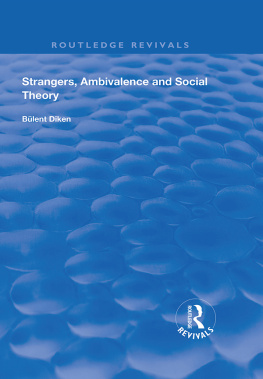
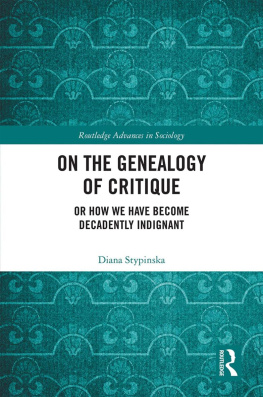
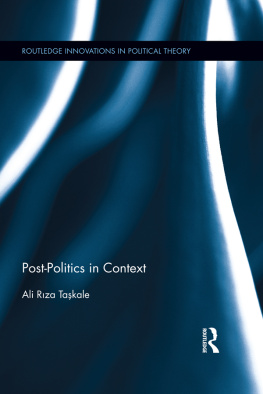
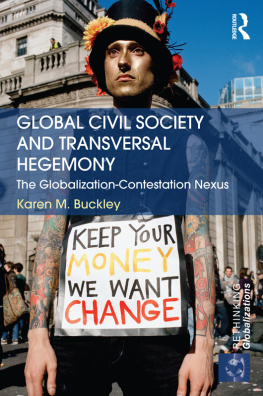


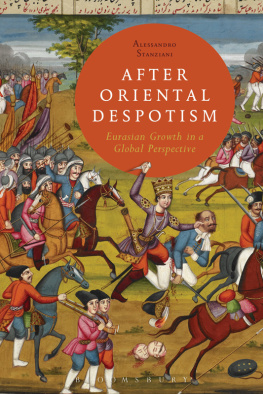
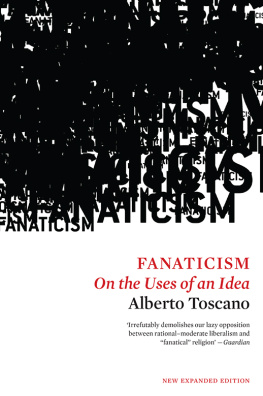



 The paper used in this publication meets the minimum requirements of American National Standard for Information SciencesPermanence of Paper for Printed Library Materials, ANSI/NISO Z39.48-1992.
The paper used in this publication meets the minimum requirements of American National Standard for Information SciencesPermanence of Paper for Printed Library Materials, ANSI/NISO Z39.48-1992.